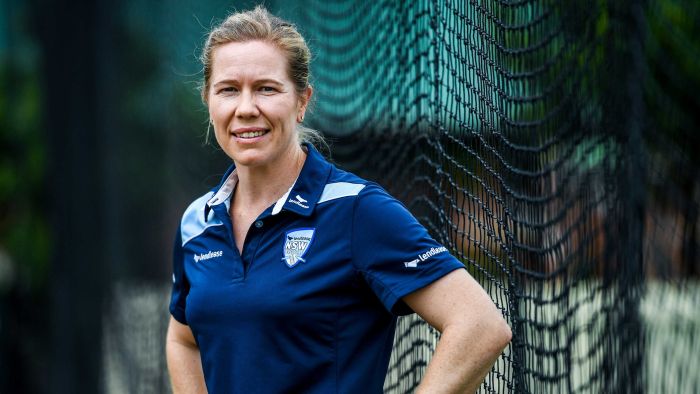Former Australian cricket captain Alex Blackwell says it is a “misconception” that homophobia is a lesser issue in girls’ and women’s sport, after a new study revealed many lesbian athletes report experiencing abuse after coming out.
Key points:
- Nearly half of LGBT girls in youth sport reported being abused after coming out
- Former Australian cricket captain Alex Blackwell says she kept her homosexuality hidden for a long time
- The study also found young gay males were less likely to play sport than their straight peers
A new study by Monash University says nearly 50 per cent of LGBT girls in youth team sport reported being a victim of homophobic abuse after coming out publicly — compared to 24 per cent who were abused but who had not come out.
Blackwell said the study showed that “gender norms and sexuality norms have been a problem in sport for a very long time”, but there had not been any “meaningful action and meaningful solutions” from sporting bodies.
“There are lots of misconceptions. There are misconceptions that lots of lesbians play sport, and what we’ve found in the research is the percentage of lesbians playing sport as teenagers is the same as the percentage of lesbians in the population,” she said.
“Perhaps for some reason lesbians are able to push through the barriers and play more elite sport, but I think that’s a big misconception, and also that there are no problems in being a lesbian in team sport.
“What the data has shown from the Monash group is that if you come out as a lesbian in team sport you are much more likely to experience homophobic abuse.
“That’s a really upsetting and scary thought because … that sort of abuse is actually going to increase your risk of self-harm and suicide, which is a really dangerous position to be in.”
In 2013, Blackwell became the first female international cricketer to publicly come out. She is married to fellow professional cricketer Lynsey Askew.
While she says her experiences have been “overwhelmingly positive”, she says she made the difficult choice to come out to support other female athletes — both gay and straight.
“The stigma that straight women experience is that they’re assumed to be gay because they play sport and then they’re assumed to be homophobes when they correct people,” she said.
“Which is a really awful position for them to be in.
“It’s hard for everyone involved. We know the problem’s been there for a very long time but we need to now be thinking about the solutions.”
The study also made note of low participation rates among young gay boys, which Blackwell says is a “serious health problem”.
“Just 33 per cent of gay boys participate in sport, compared to 68 per cent of straight boys. That’s a big problem because we know how positive sport can be for everybody,” she said.
“We need to smash some of those stereotypes and we need to continue to think about innovative solutions.
“For example, the captains [of teams] may be playing a key role in the setting of new standards around homophobic language, because the research has shown that [homophobic language] is a big deterrent, especially for males in sport.”







